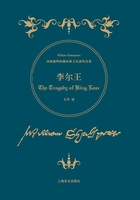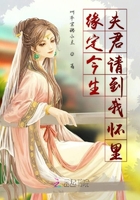Victor, on guard, studied the crowd spreading out from the platform in a gigantic fan.Nothing there to arouse suspicion;ten or twelve thousand of working class men and women.His glance pushed on out toward the edges of the crowd--toward the saloons and alleys of the disreputable south side of Market Square.His glance traveled slowly along, pausing upon each place where these loungers, too far away to hear, were gathered into larger groups.Why he did not know, but suddenly his glance wheeled to the right, and then as suddenly to the left--the west and the east ends of the square.There, on either side he recognized, in the farthest rim of the crowd, several of the men who did Kelly's lowest kinds of dirty work--the brawlers, the repeaters, the leaders of gangs, the false witnesses for petty corporation damage cases.A second glance, and he saw or, perhaps, divined--purpose in those sinister presences.He looked for the police--the detail of a dozen bluecoats always assigned to large open-air meetings.Not a policeman was to be seen.
Victor pushed through the crowd on the platform, advanced to the side of Colman.``Just a minute, Tom,'' he said.``I've got to say a word--at once.''
Colman had fallen back; Victor Dorn was facing the crowd--HIScrowd--the men and women who loved him.In the clear, friendly, natural voice that marked him for the leader born, the honest leader of an honest cause, he said:
``My friends, if there is an attempt to disturb this meeting, remember what we of the League stand for.No violence.Draw away from every disturber, and wait for the police to act.If the police stop our meeting, let them--and be ready to go to court and testify to the exact words of the speaker on which the meeting was stopped.Remember, we must be more lawful than the law itself!''
He was turning away.A cheer was rising--a belated cheer, because his words had set them all to thinking and to observing.
From the left of the crowd, a dozen yards away from the platform, came a stone heavily rather than swiftly flung, as from an impeded hand.In full view of all it curved across the front of the platform and struck Victor Dorn full in the side of the head.
He threw up his hands.
``Boys--remember!'' he shouted with a terrible energy-- then, he staggered forward and fell from the platform into the crowd.
The stone was a signal.As it flew, into the crowd from every direction the Beech Hollow gangs tore their way, yelling and cursing and striking out right and left --trampling children, knocking down women, pouring out the foulest insults.The street lamps all round Market Square went out, the torches on the platform were torn down and extinguished.And in a dimness almost pitch dark a riot that involved that whole mass of people raged hideously.Yells and screams and groans, the shrieks of women, the piteous appeals of children--benches torn up for weapons--mad slashing about--snarls and singings of pain-stricken groups-- then police whistles, revolvers fired in the air, and the quick, regular tramp of disciplined forces.The police --strangely ready, strangely inactive until the mischief had all been done entered the square from the north and, forming a double line across it from east to west, swept it slowly clean.The fighting ended as abruptly as it had begun.Twenty minutes after the flight of that stone, the square was empty save a group of perhaps fifty men and women formed about Victor Dorn's body in the shelter of the platform.
Selma Gordon was holding his head.Jane Hastings and Ellen Clearwater were kneeling beside him, and Jane was wiping his face with a handkerchief wet with whisky from the flask of the man who had escorted them there.
``He is only stunned,'' said Selma.``I can feel the beat of his blood.He is only stunned.''
A doctor came, got down on his knees, made a rapid examination with expert hands.As he felt, one of the relighted torches suddenly lit up Victor's face and the faces of those bending over him.
``He is only stunned, Doctor,'' said Selma.
``I think so,'' replied the doctor.
``We left our carriage in the side street just over there,'' said Jane Hastings.``It will take him to the hospital.''
``No--home,'' said Selma, who was calm.``He must be taken home.''
``The hospital is the place for him,'' said the doctor.
``No--home,'' repeated Selma.She glanced at the men standing round.``Tom--Henry--and you, Ed-- help me lift him.''
``Please, Selma,'' whispered Jane.``Let him be taken to the hospital.''
``Among our enemies?'' said Selma with a strange and terrible little laugh.``Oh, no.After this, we trust no one.They may have arranged to finish this night's work there.He goes home--doesn't he, boys?''
``That's right, Miss Gordon,'' replied one of them.
The doctor shrugged his shoulders.``Here's where I drop the case,'' said he.
``Nothing of the kind,'' cried Jane imperiously.``I am Jane Hastings--Martin Hastings' daughter.You will come with us, please--or I shall see to it that you are not let off easily for such a shameful neglect of duty.''
``Let him go, Jane,'' said Selma.``There will be a doctor waiting.And he is only stunned.Come, boys-- lift him up.''
They laid him on a bench top, softened with the coats of his followers.At the carriage, standing in Farwell Street, they laid him across the two seats.Selma got in with him.Tom Colman climbed to the box beside the coachman.Jane and Miss Clearwater, their escorts and about a score of the Leaguers followed on foot.As the little procession turned into Warner Street it was stopped by a policeman.
``Can't go down this way,'' he said.
``It's Mr.Dorn.We're taking him home.He was hurt,''
explained Colman.
``Fire lines.Street's closed,'' said the policeman gruffly.
Selma thrust her head out.``We must get him home----''
``House across the street burning--and probably his house, too,''
cut in the policeman.``He's been raising hell--he has.But it's coming home to him at last.Take him to the hospital.''















